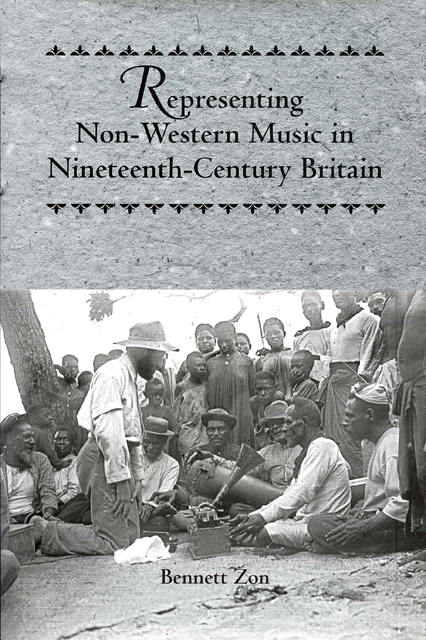Book contents
- Frontmatter
- Dedication
- Contents
- List of Illustrations
- Preface
- Acknowledgments
- Introduction Humanizing the Musical Savage: Orientalism and Racism in the History of British Ethnomusicology
- Part One Early Anthropological Influences
- Part Two Musicology in Transition to Evolution
- Part Three Individualism and the Influence of Evolution: Charles Samuel Myers and the Role of Psychology
- Part Four Retaining Cultural Identity: A. H. Fox Strangways and the Problems of Transcription
- Epilogue The “Ethnomusicology” in Long Nineteenth-Century Representations of Non-Western Music
- Works Cited
- Index
- Eastman Studies in Music
Chapter Three - Music in the Literature of Anthropology from the 1780s to the 1860s
Published online by Cambridge University Press: 10 March 2023
- Frontmatter
- Dedication
- Contents
- List of Illustrations
- Preface
- Acknowledgments
- Introduction Humanizing the Musical Savage: Orientalism and Racism in the History of British Ethnomusicology
- Part One Early Anthropological Influences
- Part Two Musicology in Transition to Evolution
- Part Three Individualism and the Influence of Evolution: Charles Samuel Myers and the Role of Psychology
- Part Four Retaining Cultural Identity: A. H. Fox Strangways and the Problems of Transcription
- Epilogue The “Ethnomusicology” in Long Nineteenth-Century Representations of Non-Western Music
- Works Cited
- Index
- Eastman Studies in Music
Summary
Among the earliest learned societies, both in Britain and abroad, there is evidence of an anthropological interest in music of non-Western cultures from the 1780s. William Jones, renowned scholar of Indian languages, literature, and philosophy, supreme court judge in Bengal from 1783 and founder of The Asiatic Society of Bengal in 1784, published Francis Fowke’s “On the Vina or Indian Lyre” in the first issue of the society’s Asiatick Researches in 1788. Not long afterward, he published his own work, “On the Musical Modes of the Hindoos” in the third issue of the same journal in 1792. Gerry Farrell, in his reading of Kejariwal’s important study of the society, suggests that Jones effectively saved Indian music from oblivion, and that part of this salvage process was enabled by the professionalization that his society had begun to undergo. As Richard Drayton writes, “by the 1780s British India began to sustain its own centres of intellectual life. William Jones founded the Asiatick Society of Bengal in 1784, to encourage enquiry into ‘the History, Civil, and Natural, the Antiquities, Arts, Sciences, and Literature of Asia.’ “
From a musical standpoint, this is recognized as representing the very first steps in the history of British ethnomusicology. Bor, for example, writes of Fowke’s treatise as “highly accurate,” and Harold Powers describes Jones’s essay as bringing Indian music “to the attention of scholars.” Indeed from the time of Jones’s Asiatick Researches, non-Western music entered the increasingly professionalized world of academic anthropological scholarship. Inevitably thisprocess was aided by a proliferation in domestic learned societies with anthropological interests, such as the Royal Society of Edinburgh (1783), the Linnaean Society of London (1788), the Royal Institution of Great Britain (1799), the Geological Society of London (1807), the Royal Asiatic Society (1823), and the Royal Geographical Society (1830). From the 1840s anthropological societies emerged as independent entities, beginning with the Royal Anthropological Institute of Great Britain and Ireland and the Ethnological Society of London (both 1843), and later the Anthropological Society of London (1865).
- Type
- Chapter
- Information
- Publisher: Boydell & BrewerFirst published in: 2023



